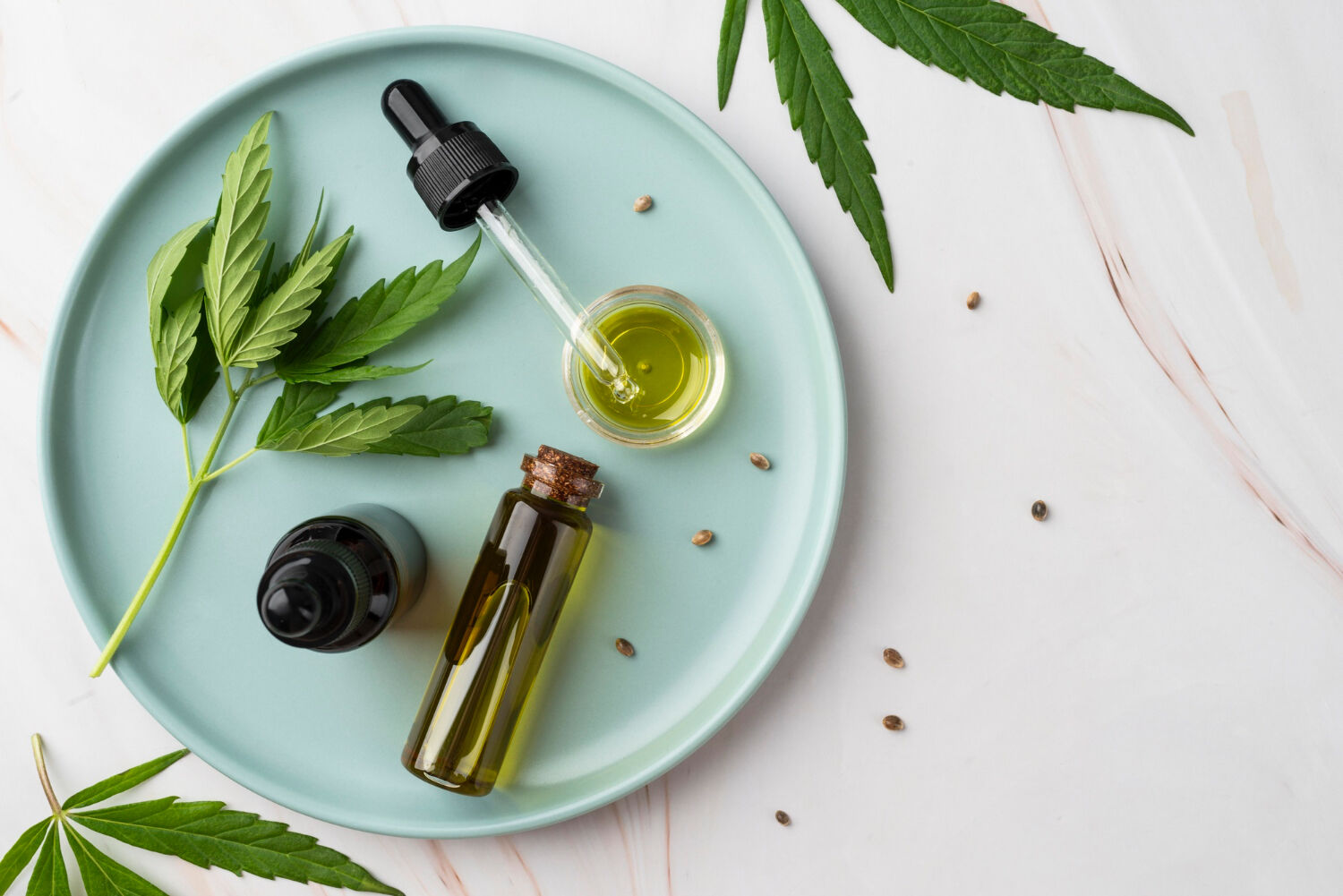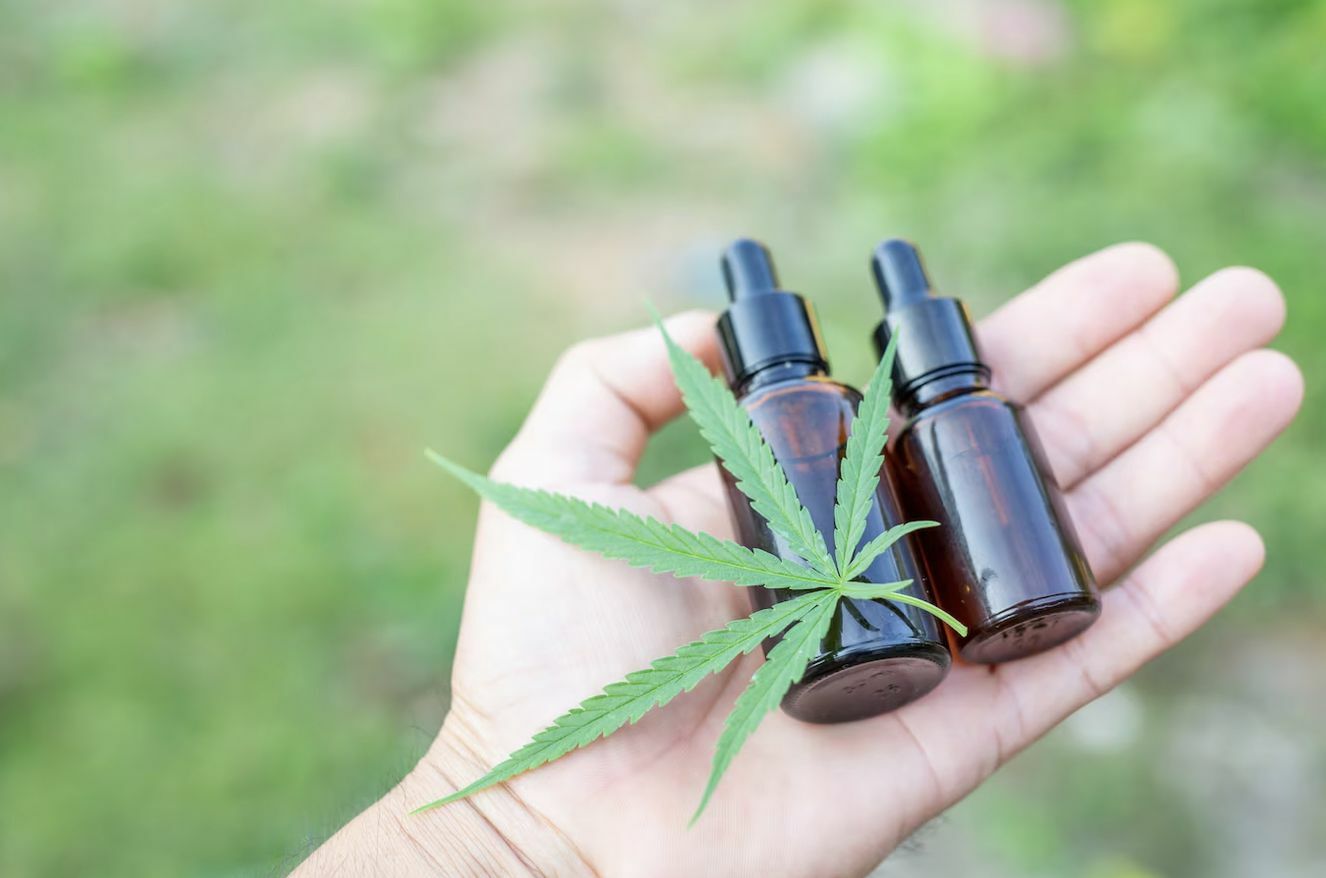CBD vs. THC, what you need to know

When you’re shopping for weed in a dispensary in Thailand, you might have come across the abbreviations CBD and THC slapped across the product labels, usually in percentages. Now if you’re new to the world of cannabis, these alphabets could have you scratching your head in confusion.
There are over 100 chemical compounds, known as cannabinoids, in the cannabis plant (Cannabis sativa). Two of the most prominent cannabinoids are cannabidiol (CBD) and delta-9-tetrahydrocannabinol (THC). Both of them interact with your body’s endocannabinoid system, but their effects are far from identical. So what sets CBD and THC apart? Is one better than the other? How do they affect your body? Here’s what you need to know about CBD vs THC so you can have a clear picture of what to expect when you use these substances.

What is CBD?
Cannabidiol, or CBD, doesn’t produce the sensation of being “high” that is often related to cannabis.
CBD is usually sold in gummies, supplements, gels, oils, extracts, and more.
What is THC?
Delta-9-tetrahydrocannabinol, better known as THC, is another principal compound found in cannabis sativa plants. Often synonymous with the effects of cannabis itself, THC is the component responsible for the psychoactive, intoxicating “high” that so often characterises the plant’s use. This naturally occurring substance is the driving force behind the effects commonly related to marijuana.
THC is usually consumed by smoking. However, it’s also available in edibles, oils, capsules, tinctures, and more.
Marijuana vs hemp

A cannabis sativa plant is classified based on its production of THC and CBD. In this classification system, Type I contains more than 0.3% THC and less than 0.5% CBD, Type II contains more than 0.3% THC and 0.5% CBD, and Type III contains less than 0.3% THC and more than 0.5% CBD.
Type I and II of this plant are often referred to as marijuana as they contain more THC. On the other hand, type III is known as hemp.
CBD vs THC: The effects
Medicinal effects

CBD and THC have quite different effects on the body. However, they can provide relief to similar health conditions and can even potentially amplify their benefits when teamed up. People may use both CBD and THC to help treat anxiety, nausea, and pain.
CBD has numerous different medicinal effects. In the form of medication, it’s often used to treat rare, difficult-to-control forms of epilepsy. However, this medication can only be obtained using a doctor’s prescription.
Moreover, people use commercially available forms of CBD to treat various conditions. These include inflammation, depression, inflammatory bowel disease, and migraine. CBD may also provide relief from symptoms of anxiety, depression, and schizophrenia.
THC, on the other hand, has potential benefits in treating low appetite, glaucoma, insomnia, and muscle spasticity. There are ongoing studies examining the potential of THC as a treatment for fibromyalgia and various forms of chronic pain.
Recreational effects

As explained before, there’s a significant distinction that sets CBD and THC in terms of experience: the feeling of euphoria, also known as the ‘high’. This intoxicating effect is solely linked to THC, leaving CBD users free from this particular sensation. Some people who seek to take advantage of the medical benefits without the accompanying ‘high’, may thus lean more towards CBD.
However, this means that THC has some recreational effects, which may include changes in mood, altered senses, and altered sense of time. It may also affect your ability to solve problems and think, judgement, memory, and coordination. These effects are short-term. In high doses, it may cause hallucinations, delusions, and even psychosis.
Other side effects

Most people can generally tolerate CBD, even in large quantities. However, it’s not all rainbows and butterflies. There are potential side effects, primarily resulting from interactions between CBD and any other medications one might be taking. This could potentially lead to complications such as liver damage. CBD may also cause gastrointestinal issues like diarrhoea or lack of appetite.
THC isn’t without its share of side effects as well. While it might not be lethal, it does bring temporary side effects and possibly long-standing negative psychiatric impacts into the picture, thanks largely to its psychoactive properties. Regular consumption of high doses could also link to red eyes, changes in blood pressure and heart rate, increased risk of mood disorders, and lung irritation.
To dodge the less-than-welcome side effects of cannabis, a few mindful habits can make all the difference. First, remember the ‘less is more’ mantra when consuming cannabis – moderation and responsible use are your best allies.
Adequate hydration is another simple and effective step in your prevention strategy. Make a point to drink a healthy amount of water before you start, during your cannabis use, and after the experience. Medication mix-ups can also pave the way for unnecessary complications. Therefore, if you’re taking other medications, it’s a good idea to monitor any potential interactions.
Here’s the beginner’s guide to buying cannabis in Thailand.
Latest Thailand News
Follow The Thaiger on Google News:


























